Although the website has been pretty quite, a LOT of work has gone into the UAT since I last posted an update nearly one year ago. This is a short summary update of the status of the UAT project; expect more details to follow.
—
1) UAT v1.1.0 Published Online
A few weeks ago we published version 1.1.0 to Research Vocabularies Australia (RVA), a controlled vocabulary discovery service from the Australian National Data Service (ANDS). We’ve been collaborating with ANDS for the better part of 2016 and are happy to have the UAT publicly available on their platform.
From the RVA platform, you can download the full UAT in different file formats, or use the API function to connect the UAT to your applications and websites.
2) UAT Steering Committee
Julie Steffen, Director of Publishing for the American Astronomical Society, has formed a Steering Committee to manage the operation and direction of the UAT. The Committee meets regularly, about once a month, to discuss topics such as outreach, funding, development, and licensing.
More information about the Committee can be found on the “Governance” page under “About Us.”
3) Versioning, Patch Notes, Deltas
Alberto Accomazzi (SAO/NASA ADS) has been developing a versioning scheme based on the Semantic Versioning standards for the Unified Astronomy Thesaurus. The existing versions found on GitHub have been renamed to follow the new scheme, and this versioning system will be used moving forward.
A defined versioning system will allow us to post useful patch notes, to describe the kinds of changes that have been made from one update to the next. Once finalized, the versioning documentation will be made available.
Additionally, we are examining the process of providing deltas (a file containing only the changes from one version to the next) as part of the update cycle.
4) Contribution Tracking & GitHub Issues
A persistent issue for updating and managing the UAT over the years has been keeping track of suggestions, contribution, and the decisions regarding them. Our first temporary solution consisted of emails sent directly to me that I filed away into a folder until I was able to act on them. Unfortunately, this system was equivalent to a black hole. Information goes in, but it’s hard to tell what, if anything, is coming back out.
At a recent Steering Committee meeting, the Issues feature on GitHub was suggested as a way to manage and track the various suggestions. GitHub also has the added benefit of being an open system; anyone can see the current suggestions under discussion and create an account to make a contribution.
A few weeks ago I began the work on transferring comments to the UAT Issues tracker, and I would welcome anyone with a suggestion or idea for the UAT to add it to the list.
More documentation detailing how we will be using the Issue tracker will be forthcoming.
5) Sorting Tool
Over the last year, the Sorting Tool was developed by Sarah Weissman (STScI) and myself as a way to give our users a visual overview of the UAT and make suggestions directly in the hierarchy.
Although this is a very powerful tool, currently the system submits its feedback as an email directly to me, which I plan to duplicate as an Issue on GitHub. Pushing feedback from the Sorting Tool directly into the Issue tracker is being examined.
6) Website Updates
Updates have been made across the UAT website, focused mainly on cleaning up the existing content and tidying up the navigational menus.
With the addition of the ANDS vocabulary server, I’ve removed the old hierarchical and alphabetical browsers, the UAT Explorer, and the UAT dendrogram view. These tools were difficult to maintain, requiring manual creation of files and uploads to the website. The new vocabulary server maintained by ANDS replaces most of those functionalities.
The Governance page has been updated to reflect the Steering Committee, and the Contribute pages now direct users to GitHub and the Sorting Tool.

